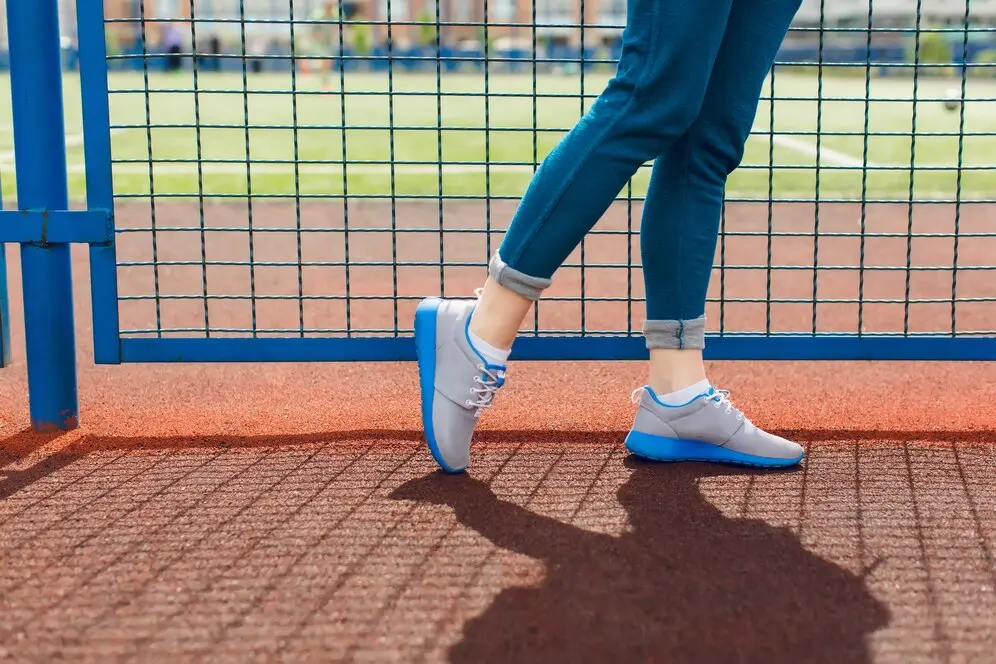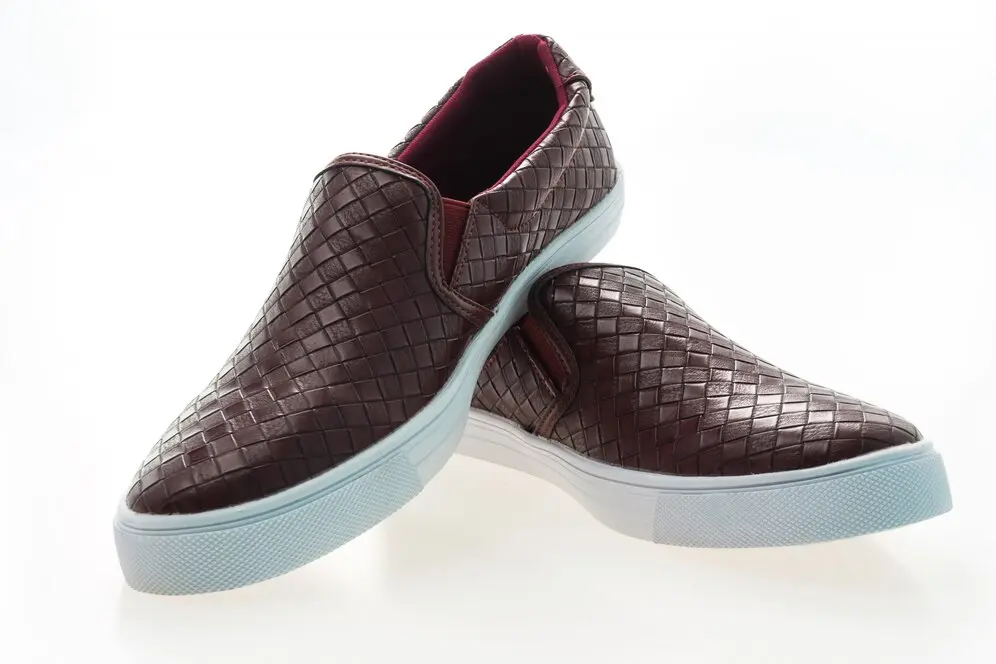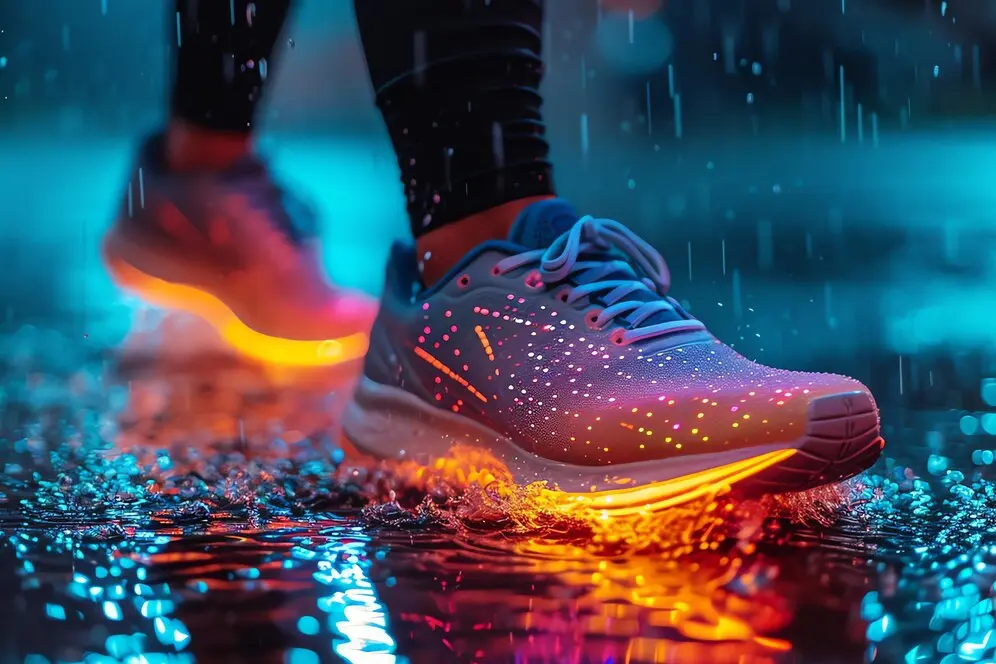Mesh Material is a lightweight, breathable material commonly used in the upper of shoes. It allows airflow to keep your feet cool and dry, especially during long walks or workouts.
Cabuks incorporate mesh material into our designs to provide you with the best combination of style and comfort.
What Is Mesh Material In Shoes
A mesh upper refers to the part of a shoe that covers the upper portion of the foot, which is primarily made of mesh Material.
This type of upper is widely used in athletic and casual footwear because of its ability to allow ventilation, keeping feet cool and dry.
Cabuks understand the need for breathable materials, especially for shoes that are worn for long periods of time.
What sets mesh fabric apart from other materials is its unique weave pattern. This pattern creates small, perforated holes that enhance breathability without sacrificing durability.
Mesh also provides a degree of elasticity, conforming to the shape of the foot for a comfortable fit.
In conclusion, the use of mesh material in shoes enhances comfort and performance by promoting airflow and maintaining a lightweight feel, making it a popular choice in both athletic and everyday footwear.
What Are The Types Of Mesh Fabric In Shoes
Here’s a look at the different types of mesh fabrics commonly used in shoes:
- Single-layer mesh: Single-layer mesh consists of one layer of fabric, often made of nylon or polyester. This type of mesh is lightweight and offers great breathability, making it ideal for running shoes and athletic footwear.
- Double-layer mesh: Double-layer mesh consists of two layers of fabric, providing durability and structure. This type of mesh is typically used in trail running shoes or hiking footwear where extra protection from rough terrain is needed.
The double-layer design helps provide more support and cushioning while maintaining breathability.
- Engineered mesh: Engineered mesh is a more advanced type of mesh Material that incorporates varying densities and weaves to enhance comfort and support. It often combines different materials and can be tailored to specific areas of the shoe for targeted breathability and flexibility.
This type of mesh is often found in high-performance running shoes and sports footwear, providing a custom fit that follows the foot’s movements.
Comparison to traditional running shoes
When mesh shoes are compared to traditional running shoes, several key differences emerge:
- Material: Traditional running shoes often use synthetic leather or heavy fabric, which can add weight and reduce breathability. In contrast, mesh shoes are primarily made from lightweight mesh materials that promote airflow and comfort.
- Weight: Mesh shoes are typically lighter than traditional running shoes due to their minimalistic design. This lightness can contribute to improved performance, especially for long-distance runners or athletes looking to reduce fatigue.
- Breathability: The most important benefit of mesh shoes is their breathability. The open-weave structure of mesh Material allows for more air flow, helping to regulate temperature and moisture inside the shoe.

What Are The Advantages Of Mesh Material For Shoes?
Mesh material has become a popular choice for several reasons. Let’s learn about the benefits of mesh shoes and why they are a great choice for anyone looking for comfort, style, and performance.
Comfort: One of the primary benefits of mesh material in shoes is its ability to adapt to the shape of your foot. Unlike rigid materials, mesh material is flexible and stretches as you move, providing a comfortable fit.
This adaptability reduces the risk of blisters and discomfort, making mesh shoes ideal for long-term wear, whether you’re working out or hitting the gym.
Breathability: Another important benefit of mesh shoes is their exceptional breathability. The open-weave structure of mesh allows air to flow, which helps keep your feet cool, especially during hot weather or intense physical activity.
This increased airflow significantly reduces moisture and odor buildup, making mesh shoes a practical choice for daily wear.
Moisture Wicking Ability: Moisture wicking ability means that it actively pulls moisture away from your feet, keeping them dry and comfortable.
Whether you’re sweating it out during a workout or relaxing on a humid day, mesh shoes keep you feeling refreshed during your activities.
Support: While some may think that mesh shoes compromise on support, this is not entirely true. Although mesh is lighter and more flexible than other materials, it still offers a reasonable level of support.
Many mesh shoes include features like cushioned insoles and sturdy outsoles that enhance stability and support, making them suitable for a variety of activities.
Aesthetic Appeal: Finally, mesh shoes offer a trendy, modern look that makes them appealing for casual wear. Available in a variety of colors and designs, they can easily compliment any outfit.
Cabuks understand the importance of mesh material in shoes.
How Long Do Mesh Shoes Last?
Mesh shoes can last anywhere from 6 months to 2 years. This range depends largely on how often the shoes are worn and the type of activities they are used for.
For example, if you wear them for daily walks or runs, you will find that they wear out more quickly than if you wear them for a casual outing. Here is a closer look at how these factors affect their lifespan:
- Frequency of use: Regular wear will naturally lead to faster wear and tear. People who use their mesh shoes as part of a rigorous exercise routine may notice signs of wear or loss of support within the first few months.
- Type of activity: The intensity and type of activity significantly affect the durability of mesh shoes. For example, high-impact sports like running can cause more wear than gentle walking. The conditions in which they are used – such as rough terrain or wet environments – also play a significant role in determining how long they last.
Factors Affecting Longevity
Flexibility of the Material: Mesh materials are designed to be lightweight and breathable, which enhances comfort and helps keep feet cool during activities. However, there can be compromises with this:
- Breathability vs. Durability: While mesh fabric allows for excellent airflow, it may not always offer the same durability as more robust materials. Over time, constant exposure to friction and environmental factors can cause mesh fabric to wear down.
- Maintenance and Care: Proper care can increase the lifespan of your mesh shoes. Regular cleaning and avoiding exposure to harsh conditions can help maintain the integrity of the material. For example, keeping them away from mud and water when possible can prevent unnecessary falls.
Cabuks makes it a priority to offer high-quality mesh shoes that balance comfort and durability, ensuring you get the most out of your footwear investment.
What Are The Disadvantages Of Mesh Shoes
While mesh shoes have gained popularity due to their breathability and lightness, they also have several disadvantages that potential buyers should consider. Here are some of the main drawbacks:
Lack of water resistance: Mesh shoes are not naturally waterproof, which means that if you encounter wet conditions, your feet can easily get wet. So, if you often find yourself in rainy or wet environments, you may need to look for alternatives or invest in additional waterproof treatments for your mesh shoes.
Sensitivity to wear and tear: Another concern with mesh shoes is that they are susceptible to wear and tear. Mesh materials can be susceptible to rips and scuffs, especially when exposed to rough surfaces or sharp objects. Over time, regular use can cause edges to fray and develop holes, which can reduce the lifespan of the shoe.
Less warmth: mesh shoes allow air to circulate, which is great for ventilation, but it can be a disadvantage when temperatures drop. If you wear mesh shoes in winter or cold environments, your feet may become uncomfortably cold.
This lack of insulation can be especially problematic for those who engage in outdoor activities during the colder months, as retaining heat is essential to comfort and performance.

Can Mesh Shoes Be Waterproofed?
Waterproof mesh can repel light moisture, but it won’t hold up to heavy rain or submersion in water.
Making mesh shoes waterproof:
While you can’t make mesh shoes completely waterproof, there are a few ways to increase their waterproofness:
- Waterproofing sprays: These sprays coat the fibers, making it harder for water to penetrate. It’s important to choose a product that’s safe for the mesh material used in your shoes.
- Sealing the seams: Some shoes may have seams that allow water to seep in. Applying a seam sealer or waterproof tape can help increase the shoes’ overall waterproofness.
- Linings and inserts: Consider using a waterproof liner or insert inside your mesh shoes. This can provide an extra layer of protection against moisture.
Can We Wash Mesh Material Shoes?
Yes, you can wash mesh shoes, but it’s important to do so carefully to avoid damaging the delicate fabric. Here are some effective tips to clean your mesh shoes while maintaining their quality:
- Remove laces: Start by removing the laces and insoles. This will allow you to thoroughly clean every part of the shoe and avoid any tangles during the washing process.
- Clean dirt: Use a soft brush or cloth to remove any loose dirt or debris from the mesh surface.
- Make a cleaning solution: Mix a small amount of mild detergent with warm water. Do not use harsh chemicals or bleach, as these can damage mesh shoes.
- Spot clean: Dip a soft cloth or sponge in the solution and gently rub the stained areas. Be careful not to over-wet the mesh, as excess water can weaken the fabric.
- Rinse: Wipe the shoes with a damp cloth to remove any soap residue. Make sure you don’t get the mesh wet, as this can cause damage.
- Air dry: Allow your mesh shoes to dry naturally at room temperature. Avoid drying them in direct sunlight or using a heat source, as this can cause the mesh to warp or shrink.
- Reattach: Once dry, replace the insole and re-lace your shoes.

Frequently Asked Questions About What Is Mesh Material In Shoes
Mesh fabric used in shoes is a lightweight, breathable fabric made from synthetic fibers that provide better air circulation and flexibility during wear.
Mesh shoes have a variety of benefits, including breathability, which helps regulate temperature and moisture, and a lightweight construction that makes them ideal for comfort and performance in a variety of activities.










1 Comment
[…] Cleaning and Maintenance: Excessive washing or using harsh chemicals can erode the mesh material. It’s essential to clean mesh shoes carefully to avoid compromising the material’s […]